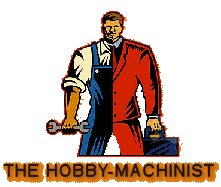- Joined
- Oct 16, 2019
- Messages
- 4
Howdy,
I'm wanting to get set up with some decent tools so that I can get started machining. I'm wanting a mill and a small lathe. I've been a woodworker for years, but this is something completely new to me. I'm not sure what all I actually need. or what features I need. Most of the stuff I want to do is kind of small. I'm an avid reloader and bullet caster, so having the ability to make my own custom molds (and the cutter to make them), along with bullet sizing dies would be great. I'd like a mill capable of cutting decent sized pieces of steel and aluminum, and that would be able to do something like either finish an 80% AR lower, or possibly even make one from scratch (if I ever become that skilled). I'd also like to be able to make things like custom rings, tools for the shop, ect. Mainly, I want something that I can learn on, and that I won't feel is hindering me in a few years.
From what I've looked at so far, a lot of people are suggesting a Grizzly G0704 mill and a G0765 lathe to get started with. Are these good choices for what I'm wanting to do with them? I'd like to keep my budget under $2,500 (maybe $3,000) just to get started.
I'm wanting to get set up with some decent tools so that I can get started machining. I'm wanting a mill and a small lathe. I've been a woodworker for years, but this is something completely new to me. I'm not sure what all I actually need. or what features I need. Most of the stuff I want to do is kind of small. I'm an avid reloader and bullet caster, so having the ability to make my own custom molds (and the cutter to make them), along with bullet sizing dies would be great. I'd like a mill capable of cutting decent sized pieces of steel and aluminum, and that would be able to do something like either finish an 80% AR lower, or possibly even make one from scratch (if I ever become that skilled). I'd also like to be able to make things like custom rings, tools for the shop, ect. Mainly, I want something that I can learn on, and that I won't feel is hindering me in a few years.
From what I've looked at so far, a lot of people are suggesting a Grizzly G0704 mill and a G0765 lathe to get started with. Are these good choices for what I'm wanting to do with them? I'd like to keep my budget under $2,500 (maybe $3,000) just to get started.


